Just close this website if you know how to learn Greek easily and have mastered it. I’ll share my personal experience of trying to understand this language.
The lists below include one fundamental reason I started learning Ελληνικά (guess it), a couple of reasons I proceeded after getting an A2 certificate, and not all the reasons why I had not started earlier.

Top 5 reasons to learn
Professional Requirements: You may not need Greek for your job, as many international companies in Cyprus use English.
Living Conditions: Knowing Greek can greatly improve daily interactions if you live in a village, are married to a Cypriot, or interact frequently with locals.
Upgrading Your Status: Greek proficiency is required for a long-term permit or Cypriot citizenship.
Cultural Integration: Learning Greek can help with cultural integration, but you can still enjoy Cypriot culture through English.
Respect and Appreciation: Learning Greek shows respect for the local culture and is appreciated by Cypriots.
Top 25 reasons not to learn
Prevalence of English: English is widely spoken in Cyprus, especially in cities and by younger people. You can manage work, shopping, and socializing in English.
Time and Effort: Learning Greek requires significant time and effort. It might not be practical if you’re in Cyprus temporarily or have a busy schedule.
Living in a Bubble: If your environment uses your native language, you may not need Greek for daily life.
Bilingual Communities: Many communities in Cyprus are bilingual, using Greek, English, and sometimes other languages like Russian or Ukrainian, allowing you to socialize without fluent Greek.
Cypriot Dialect: Cypriots often speak a dialect different from standard Greek, which can make learning standard Greek seem less valuable.
Haven’t Learned English Yet: If you haven’t mastered English, you might question the need to learn another language.
AI Will Do It for Me: You might believe that AI and translation tools will make learning new languages unnecessary in the future, reducing the urgency to learn Greek.
My setup
Sorted by priority and effect.
1. Teacher
Since graduating from school and university, I never believed I’d like to return to a classroom with other people. That’s why I patiently waited for the right person to appear on the horizon (the same way I did with my driving instructor, tennis coach, employer, and many other things).
And finally, I found the right teacher to dive into learning the Greek language.
2. Laptop
Any laptop with a camera is fine, but a computer with a good camera and microphone is better for Zoom, Skype, PDFs, notes, etc.
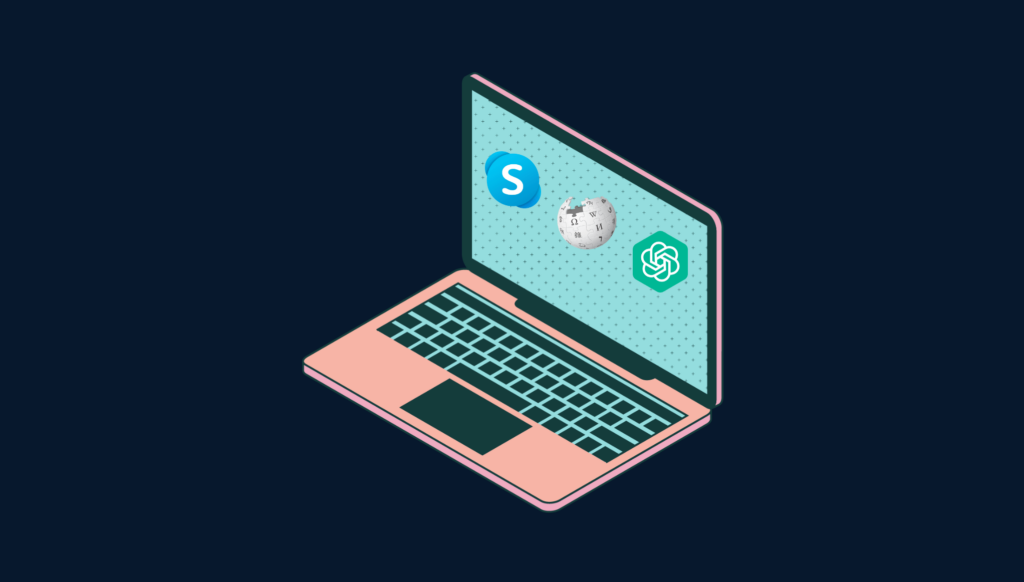
3. Tablet/reader with a pen
All of the books are a minimum of 350 pages, and they weigh a lot – this doesn’t help to consider Greek an easy and light subject. Including a big notepad makes it hard to carry for the lessons if you’re not always doing it in one place (I mix home and office). You typically only need, let’s say, 15 pages per month.
That’s what I had during school, and I still see young ladies and gentlemen with heavy backpacks in the morning on the way to school. The future is not yet here.
So, I created it for myself. At first, I bought an e-ink reader with a pen to write on and scan the books I use. Later, I realized the e-ink is a bit slow and only works for one task at a time, so I also bought a tablet with a pen.
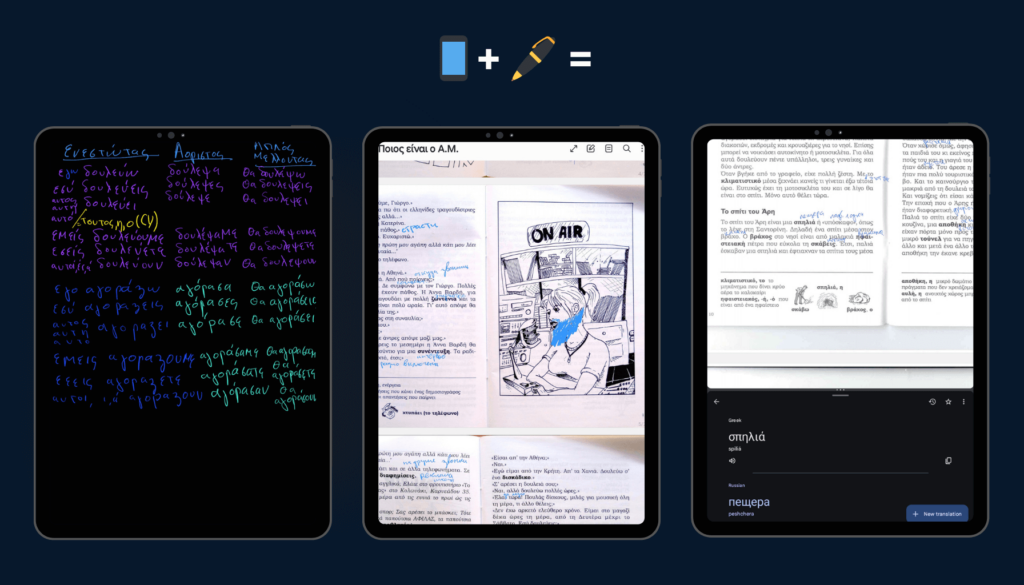
This allowed me to:
- Write in the book (add mustaches for the people on the pages is an authentic schoolcore vibe) and add translations, highlights, etc.
- For self-reading before sleep, divide the screen into two parts – one for reading, another for translating new words, and a pen to write them immediately. What is good is that you can also write in Greek with a pen to translate the word.
- I enjoy writing a bit more; I don’t like paper notepads, but I somehow enjoy digital writing.
I still use the e-ink tablet to read books that don’t require another app to be opened, such as Ilya Frank’s books (which will be mentioned below).
4. Books
As mentioned above, I scan the books I buy or find electronic versions.
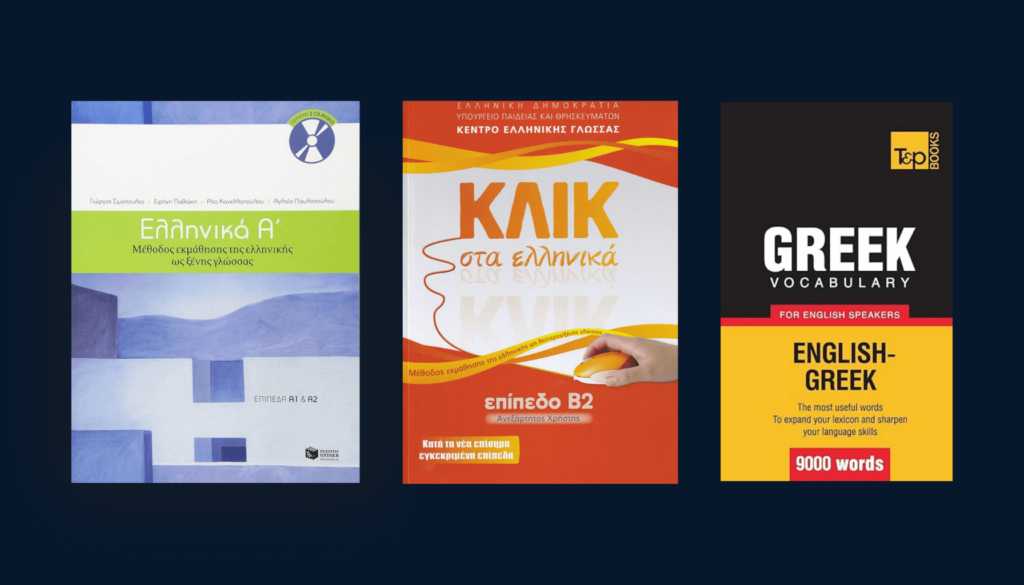
First, I started with Ellenika A, which looks excellent and well-structured. This was the main one for learning A1-A2.
It took me time to understand and accept “ΚΛΙΚ στα Ελληνικά” – design is questionable. But now I think these are the right books if you (or your teacher) know how to use them. They are also recommended by the certification center who are doing Greek Language exams.
I bought and downloaded a lot, but the only thing that helped me before exams was Greek vocabulary for English speakers – these are precisely the words I needed, structured in the way I needed.
5. Fiction books
I recommend Μικρές ιστορίες σε απλά Ελληνικά (small stories on an easy Greek) from Deltos Publishing. It is easy to find where to buy or among friends. My recommendation for the start – is this detective story.

Even if you have never heard of Ilya Frank and his method of learning languages, I recommend trying. One of the main benefits is that you only need a book to read, no extra dictionaries and devices, and it can be read before sleep or at the beach.
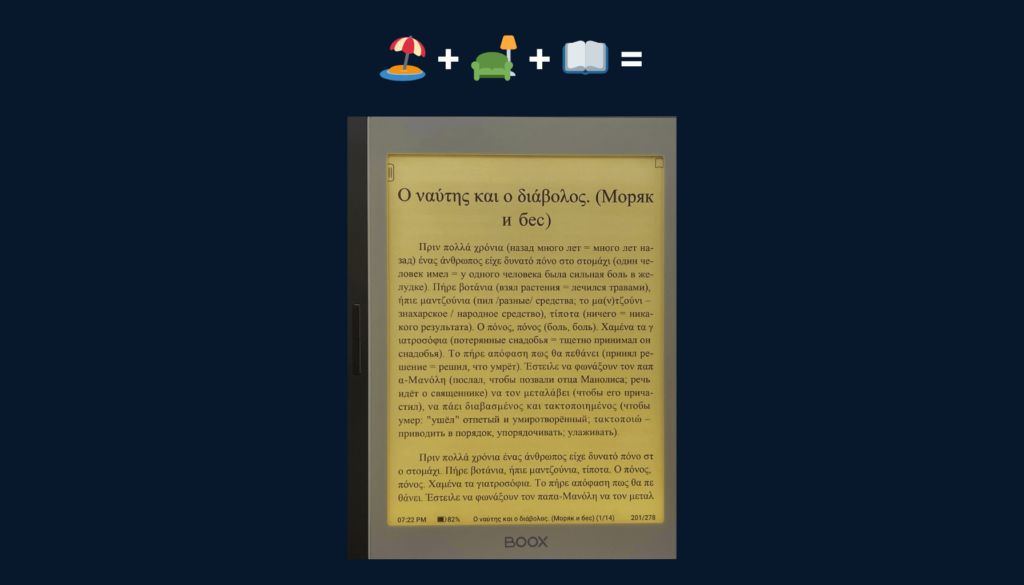
6. Chatting to locals
Regular chats with language speakers and locals can replace or change the list completely. I don’t use this method often and blame myself for it.
I plan to impress them once I’m a proficient C2 speaker παππούς.
7. Youtube channels
I know there are LOTS, but the only one I somehow watch is Easy Greek. I love their style and approach.
9. Apps
At some point, I downloaded all I found, none apart from Google Translate, DeepL, and ChatGPT, which I found helpful.
The one that still looks promising to me, but I only used it for about a week, is Beelinguaapp, which allows you to read (it seems auto-translated). Still, well-illustrated news and articles and consume other media on Greek.
Of course, I tried Duolingo. You probably saw memes about it, and I generated my own.
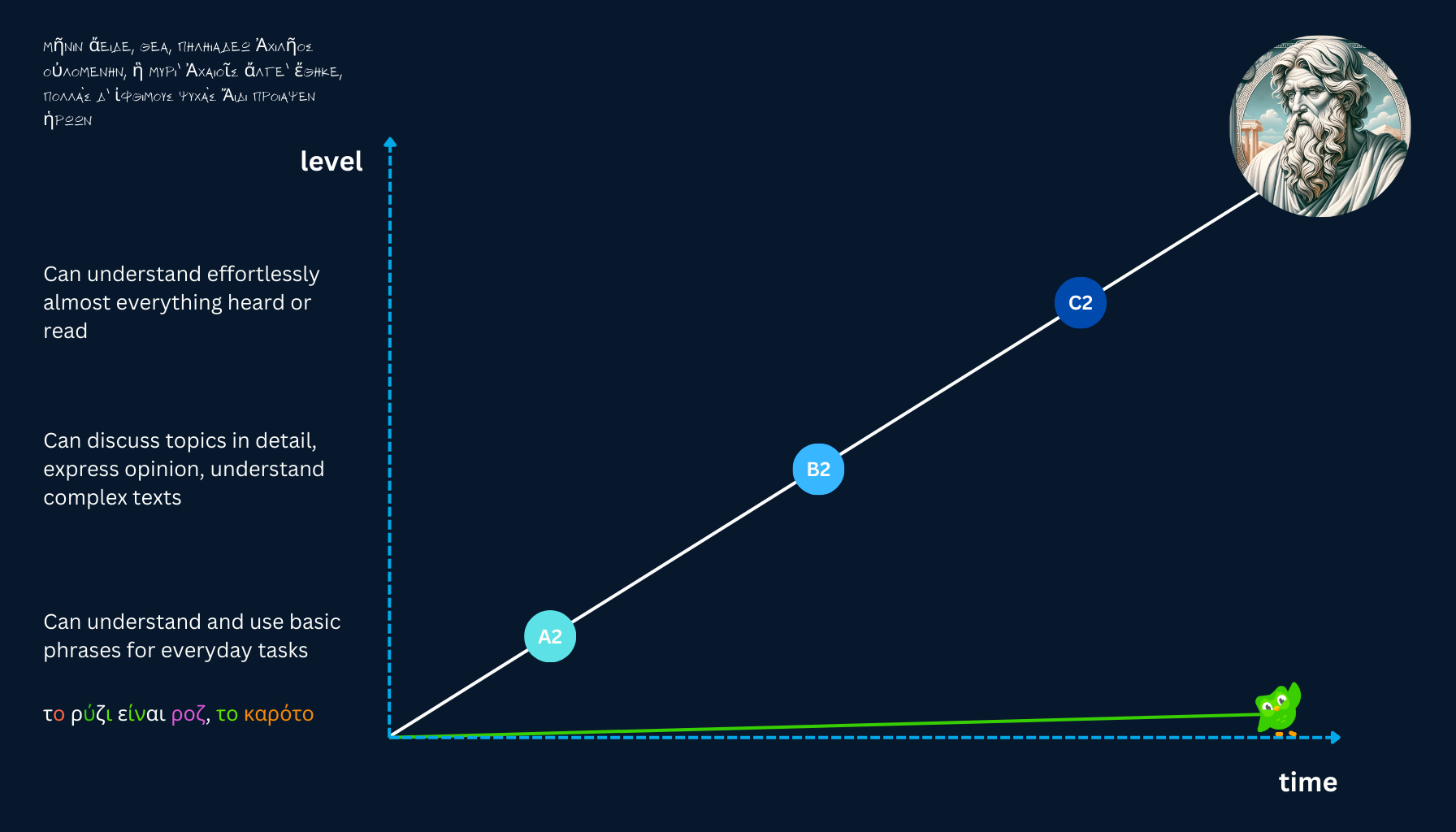
As mentioned above, I scan the books I buy or find electronic versions. I also noted that the list is sorted by effect, so Duolingo is in its place.
Did all of the listed make my learning process easy and smooth? Oxi!
I mentioned that I try to turn learning into a hobby rather than a duty, Which is why I experiment with various formats and shapes. However, this often distracts me from focusing on the learning itself. I hope any of the points will be helpful to you.
If you read it to the end and don’t have a magic pill to learn the language, I do not accept any language-learning advice apart from specific books, podcasts, and videos.


Leave a Reply